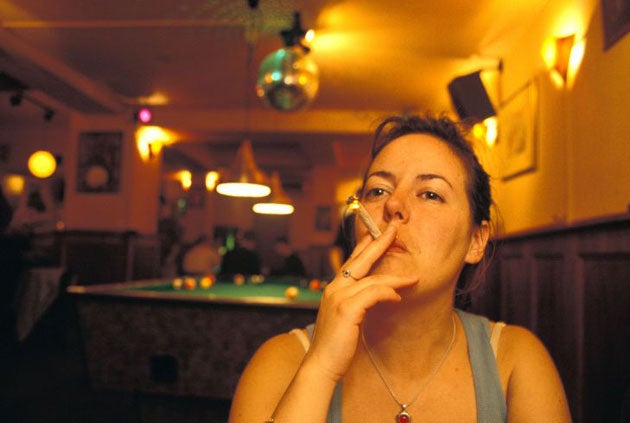Dutch plan to weed out criminals
Plans for giant cannabis farm to cut out 'back-door' supply to coffee shops

Your support helps us to tell the story
From reproductive rights to climate change to Big Tech, The Independent is on the ground when the story is developing. Whether it's investigating the financials of Elon Musk's pro-Trump PAC or producing our latest documentary, 'The A Word', which shines a light on the American women fighting for reproductive rights, we know how important it is to parse out the facts from the messaging.
At such a critical moment in US history, we need reporters on the ground. Your donation allows us to keep sending journalists to speak to both sides of the story.
The Independent is trusted by Americans across the entire political spectrum. And unlike many other quality news outlets, we choose not to lock Americans out of our reporting and analysis with paywalls. We believe quality journalism should be available to everyone, paid for by those who can afford it.
Your support makes all the difference.The Dutch city of Eindhoven has caused a stir with a plan to set up a cannabis plantation to supply marijuana to its coffee shops. The move was announced at a "weed summit", when dozens of Dutch mayors urged the government to back the pilot project in an effort to clamp down on the criminals who supply the drug.
The Netherlands, famed for having one of Europe's most tolerant policies on soft drugs, allows for the possession of less than 5g of marijuana and its sale in coffee shops, but bans the cultivation and supply of the drug to these shops. The majority of Dutch mayors say this legal "back door" has spawned an illicit industry worth €2bn (£1.7bn) a year.
"It's time that we experimented with a system of regulated plantations so we can have strict guidelines and controls on the quality and price," Rob de Gijzel, the Mayor of Eindhoven, told the Dutch newspaper Volkskrant. "Authorities must get a grip on the supply of drugs to coffee shops."
There are also concerns about the increasing strength of unregulated cannabis, with the content of tetrahydrocannabinol, the active chemical ingredient, doubling in recent years.
The weed summit was called to thrash out a revamp of drugs policy after the provincial cities Roosendaal and Bergen op Zoom announced plans to shut all their coffee shops in the next two years to combat drugs tourism and criminal activity. They complain that the 1.3 million French and Belgians who come every year for a puff of weed or dash of hash are often badly behaved. Worse still, they are targeted by "drugs runners" who lure them away from legal outlets to back-door suppliers that offer harder, illegal drugs.
Han Polman, the Mayor of Bergen op Zoom, said: "We are in favour of the Eindhoven experiment but we don't see it happening quickly. That's why we are going ahead with our shutdown."
The Justice Minister Ernst Hirsch Ballin, of the conservative Christian Democratic Appeal party, has applauded these "courageous" efforts to wipe out coffee shops.
The capital, Amsterdam, was in shock over the weekend after news that one in five of its coffee shops would be forced to close under a new law. The city council said 43 of 228 sites must close by the end of 2011 because they are within 250m of a school. This includes the famous Bulldog coffee shop, a tourist magnet housed in a former police headquarters on the Leidseplein. Three Canadian visitors were reeling from the news. One said: "We come here twice a year, we fly thousands of miles, spend probably €4,000 while we are here. It's the place to be!"
The headmistress of a nearby school, Margriet Bosman, was equally unimpressed by the new measure: "This is just for show. Children will get their drugs if they want to anyway, and closing the shops, which are quite regulated, is not a very good solution."
Amsterdam's mayor, Job Cohen, is also in favour of permitting the sale of soft drugs. "There should be a system... in which it is clear where soft drugs come from," he said. Many Dutch also want the tolerant approach to remain in place, with a newspaper poll this week showing 80 per cent of Dutch opposing coffee shop closures.
Experts agree that a ban is not the answer. "A ban is even more dangerous than the grass itself because consumers will turn to illegal circuits and criminality will explode," said Tim Boekhout, a criminologist.
The plan for a cannabis plantation will now go before the Dutch cabinet.
Dutch drugs: in numbers
£1.7bn
The estimated value of the illicit cannabis industry in the Netherlands.
5 grams
The maximum amount of cannabis an individual can have in his or her possession in Holland.
43
The number of coffee shops in Amsterdam that must close within the next three years.
Join our commenting forum
Join thought-provoking conversations, follow other Independent readers and see their replies
Comments